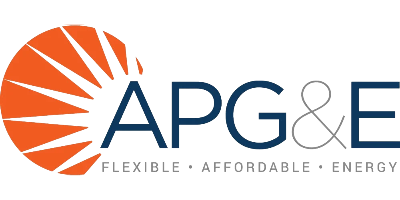
Reading electricity rates - no ugly plans
Enter your zip code to compare Reading electricity rates and electric companies.
Average Reading Electric Rates
This section highlights the average Reading electricity rates for residential and commercial customers.
- The lowest residential electricity rate in Reading is 11.33¢ ($0.1133) and the average rate is 13.77¢.
- The lowest commercial electricity rate in Reading is 7.69¢ ($0.0769) and the average rate is 12.99¢.
Reading, PA Electric Companies
Since Pennsylvania electric deregulation began in 1996, businesses have the power to choose their specific electricity provider or to continue to purchase from their utility company. For businesses of all sizes in Reading, the deregulated market allows business owners to compare energy plans from top energy suppliers and shop for the best available rate.
Energy Deregulation in Pennsylvania
In 1994 the Public Utilities Commission began investigating the energy market and published their findings in "The Report and Recommendation on Electric Competition". Their research convinced the state assembly to pass the Electricity Generation Customer Choice and Competition Act in 1996. Over the next 15 years, Pennsylvania removed market rate caps by region gradually forming a free market.
What is the difference between a Utility and an Energy Provider?
Utilities are the entities in charge of the operation and maintenance of the energy infrastructure, like wires and towers. The local utility in Reading is PPL Electric Utilities. Each utility is responsible for transporting electricity from the generators to residential homes and businesses in Reading.
Energy providers in Reading, like Direct Energy, Entrust, and Public Power, are the competitive energy retailers. Each energy provider buys energy from the wholesale market (the generators) and then re-sells it to consumers (homeowners, renters, and businesses).
In most cases, the consumer (the homeowner, renter, or business) signs a contract with an energy provider for a specific energy plan. The basic energy plan details the rate class, the energy rate per kWh, the contract term length (6, 12, 24, 36 months), and other contract terms like the cancellation fee policy.
Switch Electricity Providers in Reading
Finding a new electricity provider in Reading is simple with EnergyBot. Follow these simple steps to
get the lowest electricity rate in Reading.
Step 1: Shop Reading electric companies and prices
Enter your zip code at the top of this page and you can quickly see plans from the top Reading
electric
companies. For even better pricing use our data linking tool to pull in your historic usage from your
utility.
Step 2: Review the plan details
Energy plans often have long confusing contracts. We don't like teaser rates and tricky terms, so we
filter out the plans that trick customers into bill spikes. Each plan you see on our site has plan
details.
This breaks down the most important information about the plan into a way that is easy to understand.
Step 3: Confirm the switch to a new energy provider
Once you have decided on a new energy plan for your home business just follow the prompts to confirm. Once you're done, we give you dashboard to see the status of your contract.
Types of Energy Plans in Reading
Reading energy providers offer rates and plans with a range of options and terms. While you will see
many types of plans for the most part they are in two categories: fixed-rate and variable rate.
Fixed-Rate Electricity Plans in Reading
Fixed-rate plans will have a set price for the term of the contract. Regardless of weather, natural events, or market volatility, your rate will not change. In most cases, fixed-rate plans have a term length of 6, 12, 24, or 36 months. We recommend fixed-rate plans for most customers.
Variable-Rate Electricity Plans Reading
Variable-rate plan rates may change on a monthly basis based on market factors. Variable-rate plans offer more flexibility but present more volatility in pricing. Price changes may impact your monthly electricity bill in the form of price hikes. In most cases, we do not recommend variable-rate plans.
Reading Commercial Electric Rates
About Reading, PA
Reading is in the southeastern part of Pennsylvania with a population of 88,423.
The city was built in 1743 by Richard and Thomas Penn, the sons of William Penn who established the state of Pennsylvania. The name Reading came from their former home town of Reading, England. The city used as a military base during the French and Indian War.
The Reading Railroad was created in 1883, which is featured in the well-know board game, Monopoly. The city is known for its outlets malls, producing the first one in the country in the 1970’s.
Reading, Pennsylvania Energy Profile
Pennsylvania is the 3rd highest electricity-generating state in the nation, behind only Texas and Florida. Commercial energy consumption makes up 17.1% of all energy consumption in the state.
Electricity for Reading business and residential users is generated across the regional electricity grid, and several entities are collectively responsible for providing electricity:
- PJM Interconnection: PJM operates the wholesale electricity marketplace and ensures the reliability of the electricity grid and conducts long-term planning for the future of electricity generation and transmission.
- Pennsylvania Public Utilities Commission (PUC): Electricity is regulated at the state level by the PA PUC. The PUC sets rates (which influence how much electricity costs) and manages programs to improve energy efficiency and promote renewable electricity.
- Met-Ed: Met-Ed is the primary distribution company in Reading, servicing more than 560,000 customers in southeast Pennsylvania. While all customers can choose their electricity supplier, Met-Ed is the primary distributor for Reading homes and businesses.
Enter your Zip Code
Learn more about energy and efficiency
101 Ways to Save Electricity
From turning off lights to checking for air leaks, there are many ways to save electricity — and money.

Creating Your Home Buying Budget: How much house can you afford?
Before you begin the home buying process, it’s important to take the time to understand how to budget to buy a home. In the time leading up to closing you’ll need to make smart financial decisions and save strategically for your home buying budget.

Why You Need to Create a Budget: Everything You Need To Establish a Home Budget
Struggling to manage your finances? Learn how creating a household budget can help you take control of your money, reduce stress, pay off debt, and save for the future.





.jpeg)




